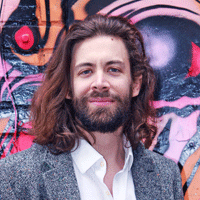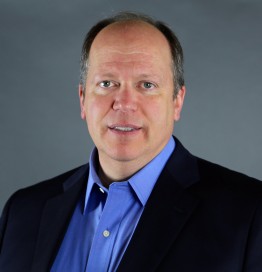
You can’t fool this bunch. These aren’t starry-eyed undergrads or eager beaver twentysomethings. In executive MBA programs, you’ll find seasoned professionals who are responsible for people and P&L alike. In every class, they are asking themselves the same questions: Why is this relevant and how can I apply this now?
This can be a tough audience for business professors. They have little tolerance for fluff…and even less mercy for phonies. In an EMBA classroom, every moment means more. So why do so many top educators relish teaching executive MBAs? Simple: They are truly their peers. These students live every day what their professors study. This fosters rich discussions that bring issues to life…and real solutions to the fore. That’s why commendations from these EMBA ‘peers’ is so special to MBA teachers.
LEARNING TO ACCEPT THE AMBIGOUS AND EMBRACE THE UNCOMFORTABLE

University of Toronto’s Grayson Bass
Each year, as part of identifying the “Best & Brightest” EMBAs, Poets&Quants asks nominees to name those professors who made the strongest impact on them during business school. Along than that, these 2017 graduates shared what made these professors so special. Take the University of Toronto’s Rachel Huckle. A rising executive at Drug Mart, Huckle admits that Grayson Bass, her Applied Innovation professor, wasn’t her favorite teacher starting out. She describes him as someone who could be “ambiguous” and used difficult-to-understand language that made her “uncomfortable.” Looking back, Huckle is thankful for the deliberate and transformative nature of this discomfort.
“It expanded my thinking and has forced me to view the world and myself within the context of the world, in a very different light.”
Huckle adds that Bass’ influence can be felt far beyond her mastery of design thinking tools. She points out, for example, that he gave her a greater appreciation for how art and satire can shape larger trends that will eventually reverberate across business. More than that, he helped her better cope with her greatest fear: uncertainty.
“Grayson’s teaching method taught me to get comfortable in ambiguous situations, and it taught me how to thrive when faced with adversity, change, and uncertainties,” she says. “Beyond the classroom Grayson makes time for all of his students, and shares his network freely, he is truly an inspirational leader and one that I will continue to reach out to beyond my MBA course.”
TOUGH AND CANDID PREFERRED OVER TAME AND TACTFUL
These days, students expect professors to be gracious, understanding, and supportive. While you won’t find many abrasive and tyrannical windbags roaming the b-school wings, that doesn’t mean MBA professors have gone soft. They may be demanding but it is done with a purpose. At IESE Business School, Eric Weber, a professor of accounting and control, is known for instilling structure — and not suffering fools easily. He made his expectations to students crystal clear early on says Jean-Cyrille Droin, a serial entrepreneur who witnessed the fruits of Weber’s tough love in person.

University of North Carolina’s Ted Zoller
“He would grade us depending on how we made the class move forward by adding value,” Droin recalls. “Don’t waste everyone’s time by raising your hand for the sake of it.” So everyone knew we’d better make our points clear, sharp and valuable otherwise he would make us regret it.”
That’s quite a role reversal for executives who are accustomed to setting the tone and holding others accountable. That said, EMBAs don’t return to campus to feel good. They come to get better. Sometimes, that means learning from instructors who dispense with the sugarcoating and tell it like it is. At the University of North Carolina, that professor is Ted Zoller, who heads the school’s Center for Entrepreneurial Studies. An entrepreneur himself, Zoller left a mark his mark on Simone Saleh, a restaurateur, through his passion, creativity, encouragement, and candor — with the latter being both rare and invaluable for aspiring entrepreneurs.
“Professor Zoller was never afraid to tell us about the chance of failure and the challenges brought by any type of business,” Saleh explains. “Hearing the REAL truth about starting a venture or growing an existing one was key knowledge that I needed to grow as an entrepreneur and future business owner. So many classes give you an equation for success, but they don’t touch on “what if things don’t go as planned” and how to recover from failure…Whenever I need a piece of business advice or have a new business idea, Professor Zoller is going to be one of the first people I turn to because I truly value his experience and perspective, and I know that he won’t be afraid to give me honest feedback.”





Questions about this article? Email us or leave a comment below.